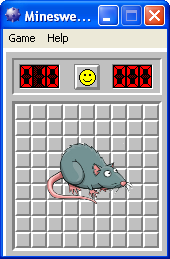Trained Rats in Cambodia Use Their Noses to Clear Minefields

Between the years of 1975 and 1979, the Khmer Rouge orchestrated a mass genocide in Cambodia that resulted in the deaths of over 2 million people — about 25 percent of the entire country. Around this time, you also had the Vietnam War, the Cambodian Civil War, and other regional conflicts that resulted in an utter ravaging of the Cambodian countryside. Each of these events saw belligerents install millions upon millions of landmines across the country, often arbitrarily and without maps to keep track of where they all went.
Nearly 40 years later, 4 to 6 million of these landmines (and other explosives) remain active and undetonated in Cambodian soil. Cambodia has one of world’s highest landmine casualty rates; a disproportionate number of these casualties are children. Landmine detection and removal is one of the country’s most notable and important humanitarian projects.
Michael Sullivan of NPR reported last week on an interesting, albeit unordinary, demining strategy: trained rats.
“Enter the rats. These are not kitchen rats, but African giant pouched rats, also known as Gambian pouched rats, about two feet long from head to tail. Their eyesight is terrible. But their sense of smell is extraordinary. The rats can detect the presence of TNT in amounts starting at 29 grams (about 1 ounce)… Each rat is responsible for clearing a 200-square-meter (239-square-yard) patch of land. Their Cambodian supervisor, Hulsok Heng, says they’re good at it.“

Corporate sponsorship opportunity?
Sullivan’s piece gives a vivid account of how the rats are trained and why they’ve proven to be more efficient than metal detectors or bomb-sniffing dogs. There’s also an interesting look into why some people still don’t trust rats in situations like this, not because they’re ineffective, but because they’re rats. Poor little things.
Read more at NPR.
Photo credit: Taylor Weidman / Stringer




